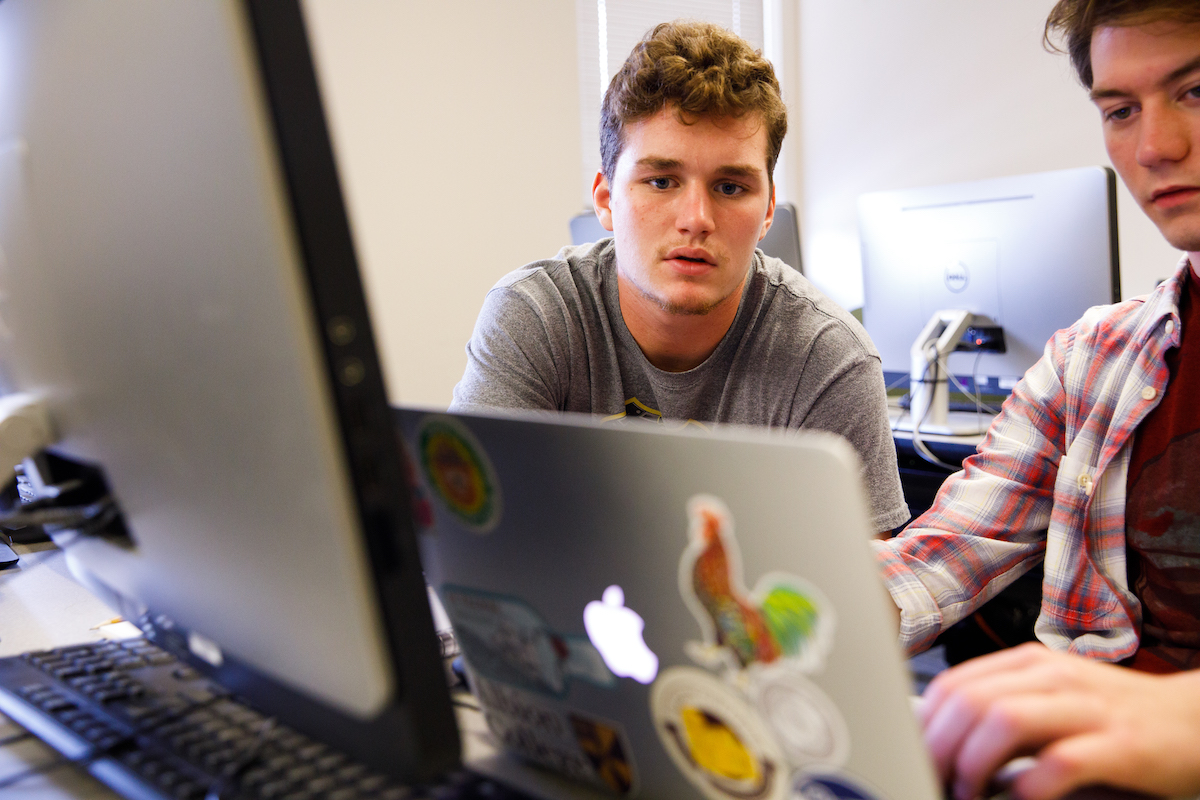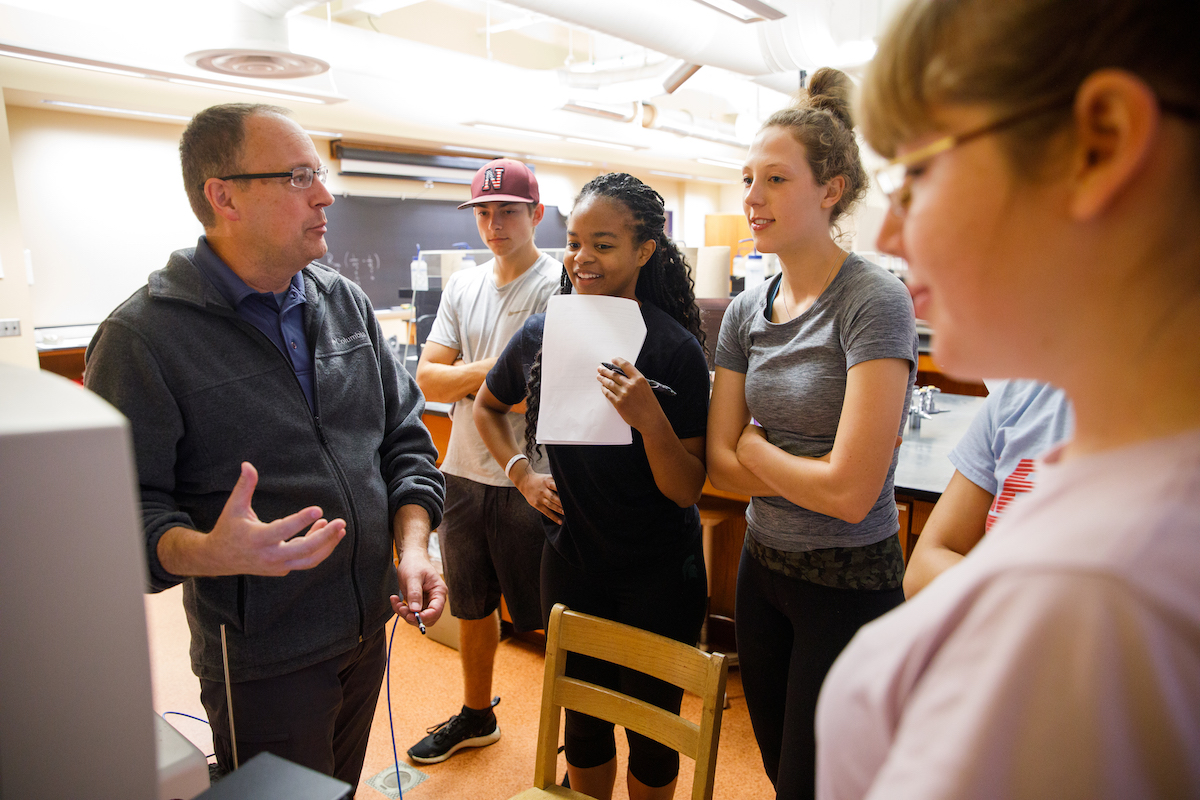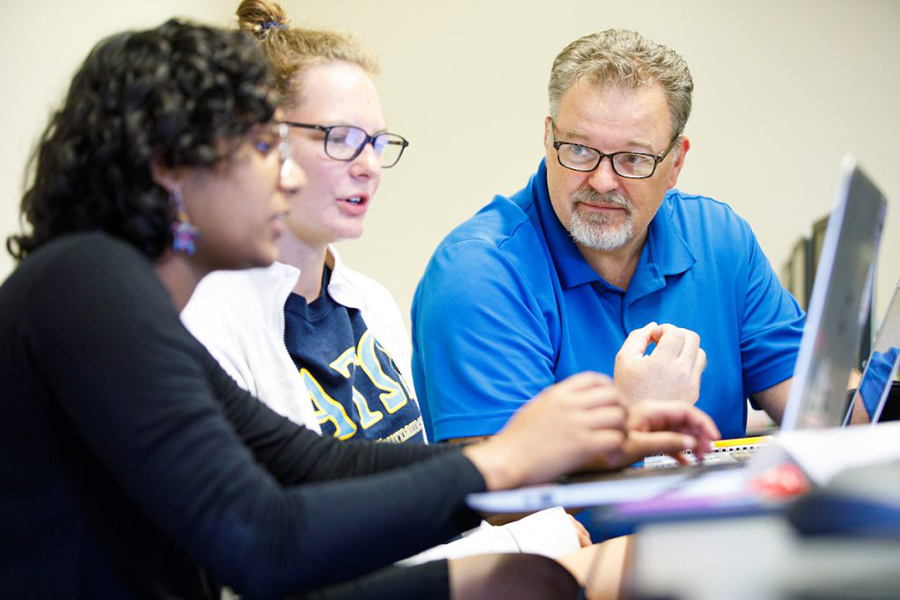Physics Major and Minor
The word “physics” comes from the Greek word for nature. By studying physics, you’ll think critically about the way nature works. You’ll ask questions, conduct research, share results and ask more questions as you gain an understanding of how nature’s basic laws form the foundation for all natural sciences, applied sciences and engineering.
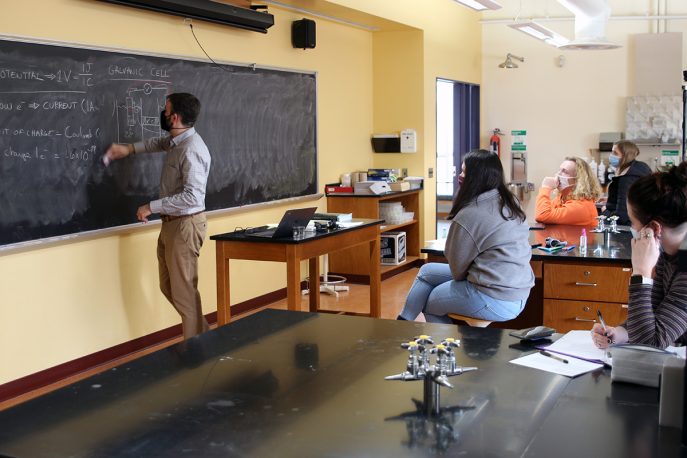
Why Study Physics at Albion?
Our rigorous curriculum and state-of-the-art laboratories will prepare you for careers in engineering and physics and for advanced studies in graduate or professional schools. A physics major with an astronomy emphasis is available for students interested in pursuing astrophysics or planetary science as a future research and career path. From your first year through your senior year, you’ll develop bonds with faculty while enjoying the benefits of a liberal arts education.
What Will You Learn as a Physics Major?
You’ll become adept in the core concepts—including Newtonian mechanics, electricity and magnetism, light and optics—of physics and astronomy.
You’ll expand your mathematical and analytical skills as you conduct experiments and interpret results.
And you’ll gain important experience in written and oral scientific communication that you will come to rely on long after graduation.
Teacher Certification with a Physics Major
Interested in teaching? Pair your Physics major (or minor) with an Education Concentration to be eligible for your Michigan Department of Education teaching certificate.
Program Highlights
Research Opportunities
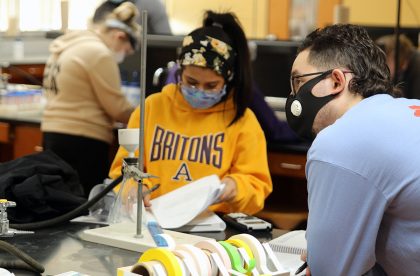
On campus, work closely with Albion faculty on their research, and later develop and conduct your own research and present findings at the College’s annual student research symposium. Off campus, students participate in summer or semester-long opportunities through the National Science Foundation, Oak Ridge National Laboratory and other facilities across the country.
Campus Facilities
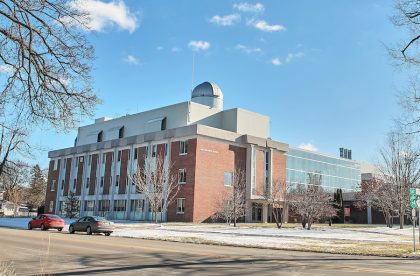
Located in Palenske Hall, one of four buildings that make up Albion College’s Science Complex, the department has fully equipped instructional laboratory spaces as well as two observatories. Major instrumentation includes a thin film deposition chamber, a 5 kV ion-atom accelerator, a high-precision and low-background gamma-ray spectrometer with digital electronics a 14-inch Celestron telescope with CCD cameras, numerous smaller telescopes, and a historically significant Alvan Clark telescope that dates from 1883.
Scholarships and Awards
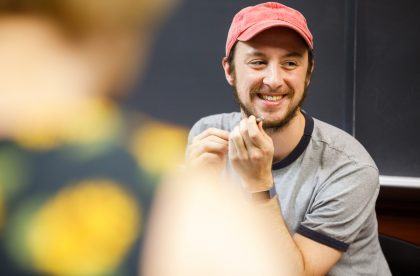
Exceptional Albion students pursuing physics are recognized each year.
- The Dorothy & David Kammer Scholarship and Charles W. Ricker Scholarship support highly qualified students currently or intending to major in physics.
- The Norma J. Taber Scholarship for Women in Engineering is awarded to a top female science or math student with interest in engineering.
- The Alumni/Faculty Endowed Physics Scholarship identifies students who have demonstrated potential for mastery of classical or modern physics.
- The Howard E. Pettersen Prize and the E.T.S. Walton Award are presented annually to the outstanding sophomore and senior physics major, respectively.
Careers & Outcomes
Albion physics graduates are valuable employees and attractive applicants for master’s and doctoral programs. In particular, they are well equipped to pursue additional studies in engineering and typically are strong candidates for medical school, dental school, and law school. Your preparation for graduate work also can lead to careers in teaching or research in industrial or government laboratories.
Job Titles
- Aerospace Engineer
- Industrial Engineer
- Mechanical Engineer
- Astrophysicist
- Computer Scientist
- College Professor
- High School Physics Teacher
- Technical Writer
- Patent Lawyer
- Research Physicist
- Medical Doctor

